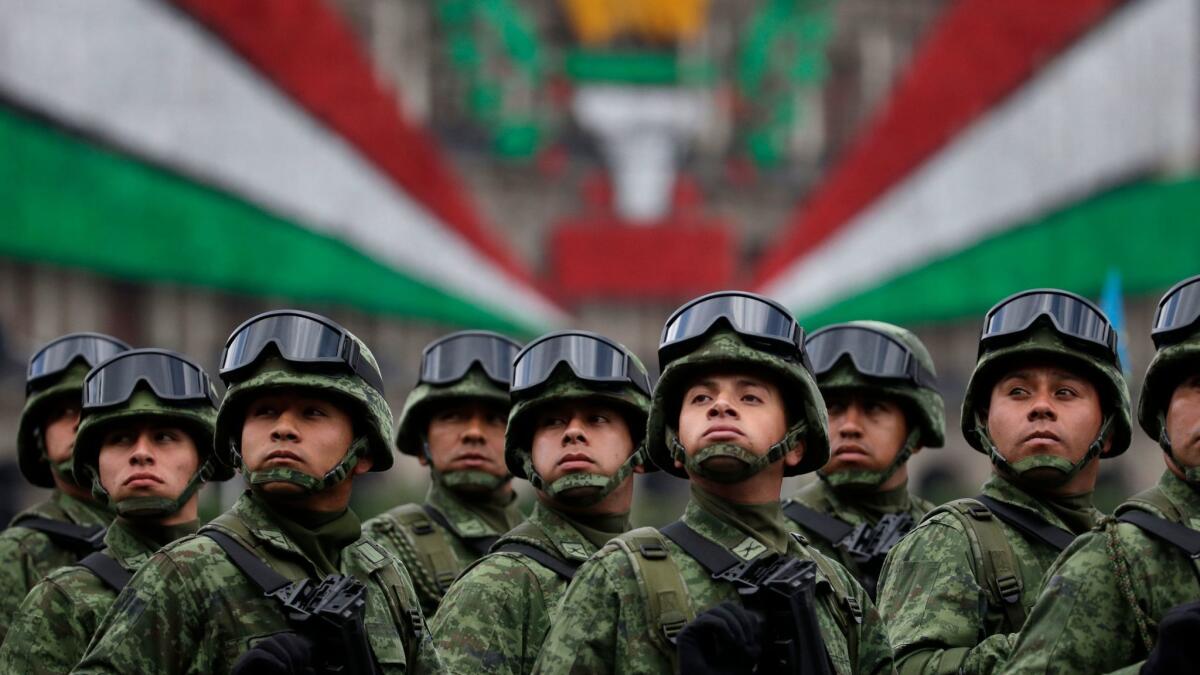Mexican lawmakers approve bill allowing army to act as police

Reporting from Mexico City — Mexico’s ruling party rammed a bill through Congress’ lower house Thursday giving the military legal justification to act as police, steamrolling objections by rights groups and opposition legislators who said it would effectively militarize the country.
Supporters of the bill said Mexico’s armed forces have to stay in the streets to fight drug gangs, given the incapacity and corruption of local police forces. But critics said there should still be a calm, detailed debate about whether the law should allow the army to perform law enforcement duties indefinitely, and with what limits.
The hurried approval process, in which members of the Chamber of Deputies debated and voted on a bill that most apparently had not had time to read, meant a thorough, reasoned debate did not happen.
“Blah, blah, blah. The truth is you always vote against everything,” said Arturo Alvarez, a congressman from the Green Party, an ally of the ruling Institutional Revolutionary Party. “The fact is we still need the army in the streets.”
It remains to be seen whether there will be more debate in the Senate, which will now take up the legislation.
The bill was voted through a lower house committee an hour or two before it was approved by the full body on a 248-115 vote.
“Today this Congress is about to write ... one of the most embarrassing and shameful pages in the history of Mexico,” said Jorge Alvarez, a congressman from the small Citizens Movement party. “The majority of congressmen and congresswomen here to vote today aren’t even familiar with the bill.”
The bill would allow soldiers to do legally what they have been doing ad hoc for at least a decade: conduct raids and man highway checkpoints, pursue and detain suspects.
Supporters said the measure would permit troops to act only for renewable one-year periods in states where the president issued a finding that local police forces weren’t up to the task. Opponents said that could make the deployments endlessly renewable.
Critics also questioned a provision that would classify as “secret” any information about deployments.
They also said the bill would make it too easy for a president to declare a state of emergency and send the army into the streets, and warned that it opened the possibility of using troops to crack down not only on cartel gunfights but also on protest movements and other demonstrations if they were not deemed to be “peaceful.”
More to Read
Sign up for Essential California
The most important California stories and recommendations in your inbox every morning.
You may occasionally receive promotional content from the Los Angeles Times.










